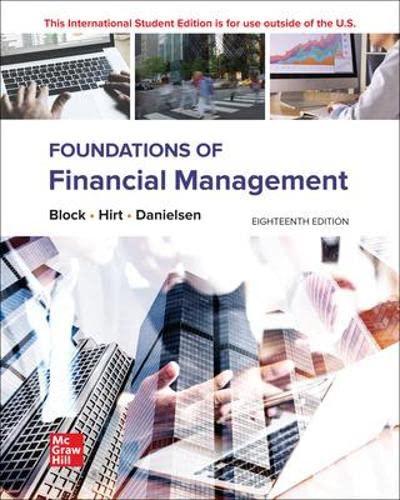

Question 1 (20 marks) Suppose Mr. T comes to you via a broker with the following proposition: "You will give me $1600 today. In return, 18 months from now I will guarantee to pay you whatever the square of the stock price of ABC is at the time. For example, if the stock price ends up at $80, I will pay you $80^2=$6400." The current stock price of ABC is $20. You know that each half year the stock price will either increase by 100% or decrease by 50%. The risk-free discount rate is 9.76% per annum. b) Assume that the stock pays no dividends. Would you accept this offer? Why? (8 marks) c) Continue to assume that the stock pays no dividends. Suppose upon receiving the payment from Mr. T one year from now, you will need to pay $100 to the broker. That is, if the stock price ends up at $80, you will receive $80*$80 - 100 = $6300; if the stock price ends up at $2, you will receive a net payoff of $2*$2-100 = -$96. Assume that you are very risk averse, explain how this additional cost will affect your calculation of the lowest acceptable offer price in b)? (4 marks) Question 1 (20 marks) Suppose Mr. T comes to you via a broker with the following proposition: "You will give me $1600 today. In return, 18 months from now I will guarantee to pay you whatever the square of the stock price of ABC is at the time. For example, if the stock price ends up at $80, I will pay you $80^2=$6400." The current stock price of ABC is $20. You know that each half year the stock price will either increase by 100% or decrease by 50%. The risk-free discount rate is 9.76% per annum. b) Assume that the stock pays no dividends. Would you accept this offer? Why? (8 marks) c) Continue to assume that the stock pays no dividends. Suppose upon receiving the payment from Mr. T one year from now, you will need to pay $100 to the broker. That is, if the stock price ends up at $80, you will receive $80*$80 - 100 = $6300; if the stock price ends up at $2, you will receive a net payoff of $2*$2-100 = -$96. Assume that you are very risk averse, explain how this additional cost will affect your calculation of the lowest acceptable offer price in b)? (4 marks)








